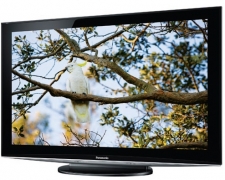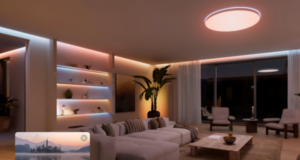
Whether it’s for a bone-crunching home entertainment system or just something to distract your kids with, it’s wise to understand what you’re getting for your money when you choose a television.

Whether it’s for a serious, bone-crunching home entertainment system, or just something to occasionally distract your kids with, it’s important to understand what you’re getting for your money when you choose a television. Buying a ‘good’ television for your purposes doesn’t necessarily mean buying the most expensive television, but in many cases spending a little extra will give you a lot more bang for your buck. Knowing where you’re going to be using it also makes a difference.
What type of TV should I buy?
The type of TV you buy should depend on the size of the space you have available. There are practical differences between the three main competitors in the market, and plasma, LCD and LED TVs will all give you different quality in the same space.
Due to their backlighting, LCD and LED TVs work better in daylight, while plasma TVs provide better quality in dark atmospheres where light can’t reflect off their glass screens. Plasma televisions have traditionally provided better picture quality at more extreme angles too, although LCD TVs and LED TVs have largely caught up on that front, and unlike plasmas, do not suffer from images being ‘burned-in’ when left on the screen too long.
LED TVs are very similar to LCD TVs in terms of the way they work, but instead of using a fluorescent backlight, they use energy-efficient LED lighting, and as such use much less electricity.
- Edge-lit LED TVs – These feature LEDs around the edge of the screen, allowing for a thin construction.
- Full array LED TVs – These TVs use an array of LED lights behind the screen to offer superior contrast, brightness and colour to edge-lit LED TVs.
- RGB dynamic LED TVs – These feature an array of LEDs capable of providing a greater colour range and localised adjustments in contrast and brightness. RGB dynamic LED backlighting is considered to offer the best image quality of the three different types.
What size TV should I buy?
Before looking at what size TV you want to buy, you need to look at the space in which your TV is going to si. Resolution and TV size will be dependent on how far away you will need to sit to get the best picture quality.
An HDTV has a limited number of pixels. The larger the TV, the larger the pixels, and the more likely you are to see them when you’re close to the screen. Bigger TVs require you to sit further away for a nice smooth image. If you only have a small space to work with, you’re better off buying a suitably sized LCD or LED set.
If you’re looking for a TV for a nice big entertaining area, then a plasma TV may be the safer bet. Plasmas provide better picture quality than LCDs and are generally cheaper, despite their large size. For really big rooms or true cinema-style entertainment systems, you might even want to look at buying a projector and projector screen. Just remember that projectors are more susceptible to the outside environment.
Why do I need a full HD (1080p) TV?
While the highest resolution currently being used by digital TV broadcasts is 1080i, if you’re buying a new TV you should ideally look for one that’s capable of full HD (1080p) picture quality. Blu-ray systems, video game systems and most other video sources in the future will offer this quality, and if your TV isn’t capable of displaying it you just won’t be getting the best possible image quality.
Brand and warranty
Generally speaking, it’s a pretty good idea to go with a known brand. Most importantly, what you should be looking at is what sort of warranty your TV comes with, and the overall build quality. While the larger brands normally make higher quality goods, a name alone isn’t enough to guarantee you peace of mind.
Try looking for televisions with a lengthy guarantee, or even look at buying an extended warranty if it provides you with a few years’ security. You will pay extra in both circumstances, but if you get what you’re paying for, the warranty should pay for itself. Compare the terms of different warranties too – some are more generous than others when it comes to acknowledging dead pixels as a warranty issue.
Energy efficiency ratings and MEPS labels
All new TVs sold in Australia will come with an energy rating of more than one star. Different types and sizes of TV will consume vastly different amounts of power, and energy efficiency is a very significant factor when you consider rising electricity costs. LEDs are more efficient than LCDs and LCDs more than plasmas.
Connecting your home entertainment system
If you are purchasing a TV to connect to your home entertainment system, you should consider what you’d like to plug into your TV. Check out what types of ports, plugs and connectors you need for your system and make sure the TV you’re choosing supports the other hardware.





